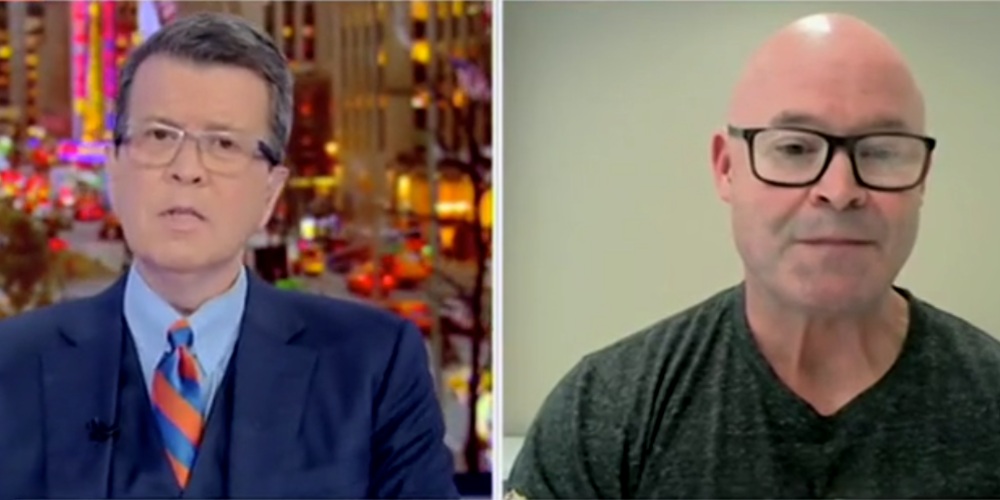Subscribe for free to the America First Report newsletter.
![]() (DCNF)—Teamsters President Sean O’Brien suggested that Democratic Rep. Nancy Pelosi of California and Democratic Sen. Chuck Schumer of New York should “step aside” following Vice President Kamala Harris’ defeat in the presidential election.
(DCNF)—Teamsters President Sean O’Brien suggested that Democratic Rep. Nancy Pelosi of California and Democratic Sen. Chuck Schumer of New York should “step aside” following Vice President Kamala Harris’ defeat in the presidential election.
The union announced in September it would make no endorsement in the election, even though President-elect Donald Trump received overwhelming support in electronic and phone surveys of the rank-and-file members of the Teamsters. O’Brien said he stood by that decision when asked by “Your World” host Neil Cavuto.
“The polling that we did was extensive. Obviously, it went towards President Trump but we still got a large contingency that are still Democrat, vote Democrat,” O’Brien said. “The decision we made as a general executive board, I’ll stand by it. The good news is that, the Democrats have an opportunity to refocus and try to reclaim why they lost the working class and the Republicans have been saying they want to be the working-class people. So, it’s a great opportunity for both sides, especially Republican, to prove that. We have a lot of issues we need to get resolved in this country, and we have got to do it.”
WATCH:
Cavuto noted O’Brien didn’t speak at the Democratic convention in August after he addressed the Republican convention in July. O’Brien said he wanted elected officials to “take care of the working people.”
“We want results, not excuses,” O’Brien said. “And look, the great part about this process is we have four more years. If people don’t, on either side, live up to their promises and/or fix their problems, we’ve got four years to build a machine to get the right people in there that will make the right decisions.”
O’Brien also took aim at Democratic leaders, saying they were too focused on “social issues” during an “Economic election.”
“At the end of the day, a lot of these issues are important but what is more important is providing an opportunity for your family, putting food on the table, saving some money and living the American dream. So, they have got a lot of soul-searching to do,” O’Brien said. “I said this earlier today in another interview, the Democrat Party needs to take a look in the mirror and say maybe Chuck Schumer’s time is over, maybe … Pelosi’s time is over. Let’s figure out who is going to be the best for the party.”
“As an organization, we are always looking at how do we leave this organization better than we found it. I think that needs to be the focus,” O’Brien added. “Look, we all have pensions for a reason. That’s to use them to retire and enjoy life. Maybe they should take a page out of Joe Biden’s book and step aside.”
All content created by the Daily Caller News Foundation, an independent and nonpartisan newswire service, is available without charge to any legitimate news publisher that can provide a large audience. All republished articles must include our logo, our reporter’s byline and their DCNF affiliation. For any questions about our guidelines or partnering with us, please contact [email protected].
Controlling Protein Is One of the Globalists’ Primary Goals
Between the globalists, corporate interests, and our own government, the food supply is being targeted from multiple angles. It isn’t just silly regulations and misguided subsidies driving natural foods away. Bird flu, sabotaged food processing plants, mysterious deaths of entire cattle herds, arson attacks, and an incessant push to make climate change the primary consideration for all things are combining for a perfect storm to exacerbate the ongoing food crisis.
The primary target is protein. Specifically, they’re going after beef as the environmental boogeyman. They want us eating vegetable-based proteins, lab-grown meat, or even bugs instead of anything that walked the pastures of America. This is why we launched a long-term storage prepper beef company that provides high-quality food that’s shelf-stable for up to 25-years.
At Prepper All-Naturals, we believe Americans should be eating real food today and into the future regardless of what the powers-that-be demand of us. We will never use lab-grown beef. We will never allow our cattle to be injected with mRNA vaccines. We will never bow to the draconian diktats of the climate change cult.
Visit Prepper All-Naturals and use promo code “veterans25” to get 25% off plus free shipping on Ribeye, NY Strip, Tenderloin, and other high-quality cuts of beef. It’s cooked sous vide, then freeze dried and packaged with no other ingredients, just beef. Stock up for the long haul today.







